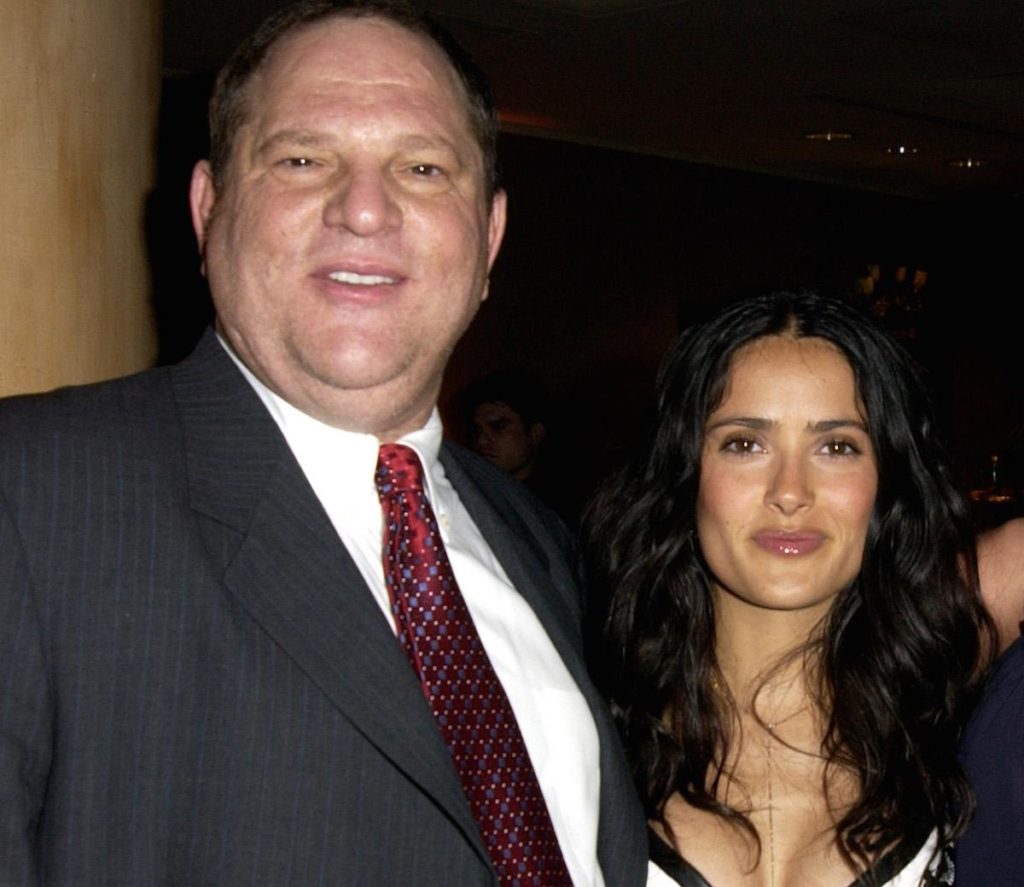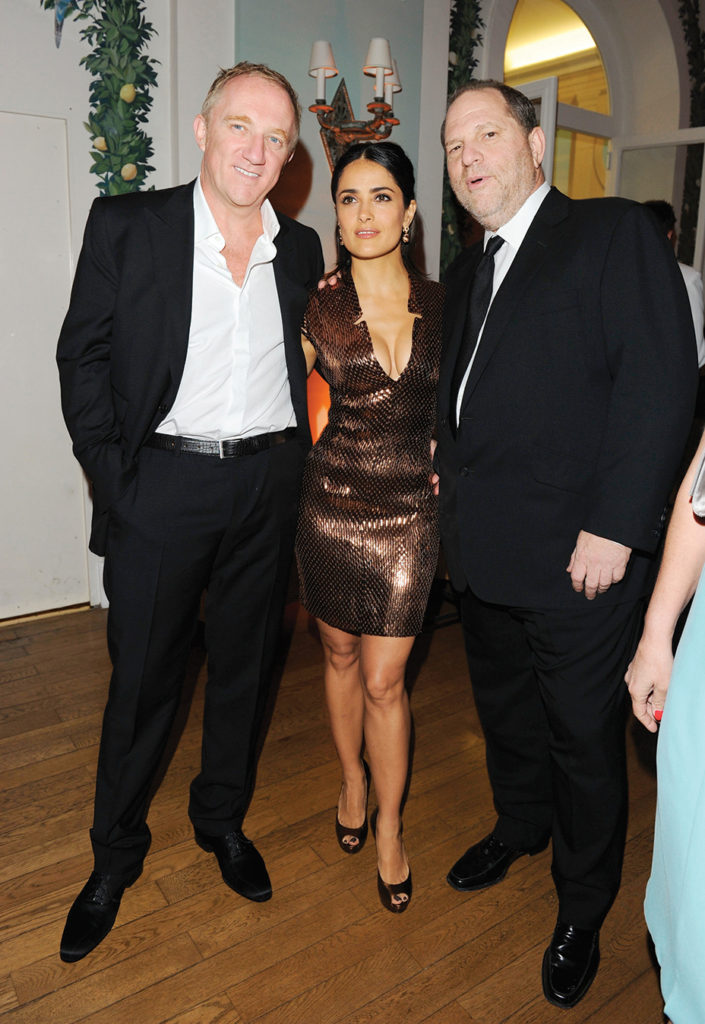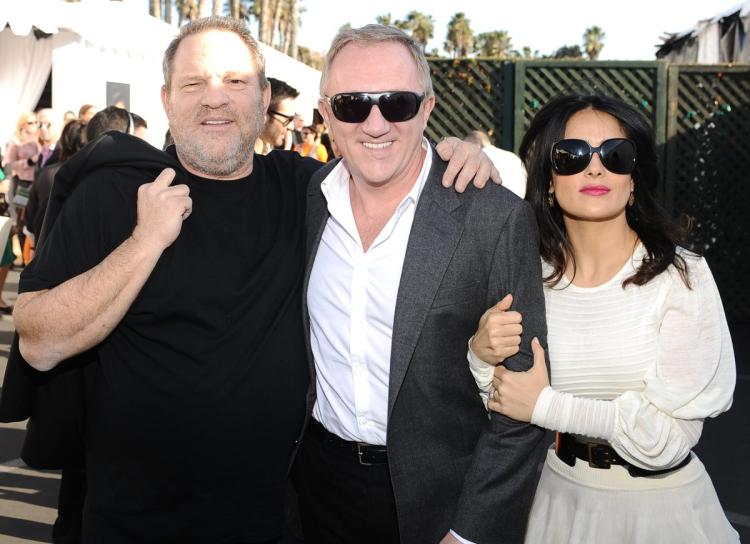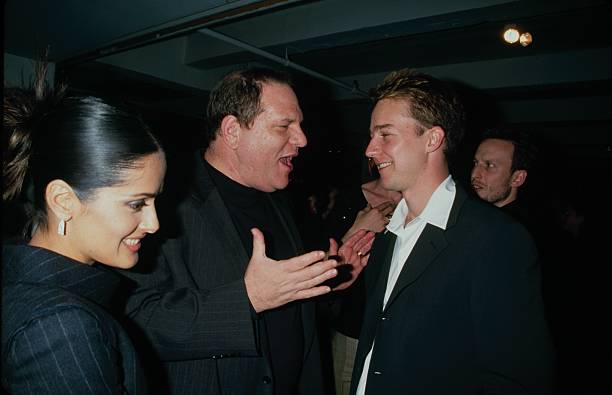It’s been two months after The New York Times released the bombshell of an article detailing Harvey Weinstein’s bout with sexual harassment against actresses, assistants, and models who worked with him. The mind behind films such as Pulp Fiction, Good Will Hunting, and Kings Speech settled eight lawsuits accusing him of sexual assault.
“There is a toxic environment for women at this company,” Lauren O´Connor, who was involved in casting discussions with many actresses after their “private appointments” with Weinstein wrote in a searing memo addressed to the board in 2015. Based on reports, his modus operandi mostly consisted in inviting women over to a hotel for what they thought were work reasons, only to discover Mr. Weinstein sometimes seemed to have different interests.

Among the accusers, actresses Ashley Judd and Rose McGowan came forward and now, sometime later, after more and more accusations surfaced and Weinstein Company’s board finally decided to fire Harvey. Salma Hayek also agreed to come forward, crudely detailing in a personally penned New York Times article the years of horrifying encounters with the man she has come to identify as her “monster.”
The article revolves around her time working with Weinstein on the Miramax movie Frida, where she starred as Frida Kahlo. Hayek goes on to describe the difficulties she had to go through, getting a movie she was very passionate about doing, while at the same time spurring the advances of one of the most influential producers in Hollywood.

In the beginning, she details Weinstein’s persistent advances and the usually bordering on violent reactions and use of manipulation whenever he was told no. “No to opening the door to him at all hours of the night. No to me taking a shower with him. No to letting him watch me shower,” she explained.
“No to letting him give me a massage. No to letting a naked friend of his give me a massage. No to letting him give me oral sex. No to my getting naked with another woman. No, no, no, no,” Hayek continued. “I don’t think he hated anything more than the word no.”
“The range of his persuasion tactics went from sweet-talking me to that one time when, in an attack of fury, he said the terrifying words, ‘I will kill you, don’t you think I can’t,'” she said. Weinstein tried to stop production more than three times.

First, he tried to offer Hayek’s role and script to another actress. Once filming started, and his rage escalated, he’d once again threaten to shut down the film.
“He told me that the only thing I had going for me was my sex appeal and that there was none of that in this movie,” Salma said. “So he told me he was going to shut down the film because no one would want to see me in that role.”
He would let Hayek finish the movie only on the condition she agreed to do a sex scene showing full-frontal nudity with another woman and Hayek had to comply. She had a nervous breakdown the morning of the shoot.
“It was not because I would be naked with another woman. It was because I would be naked with her for Harvey Weinstein.”

It didn’t end there. After seeing the cut film and deeming it wasn’t good enough, Harvey also tried to have the movie skip the theatrical release and send it straight to video.
After a fight with Julie Taymor – a close friend of Hayek and director of the film who had fought alongside with her to have the movie made – Weinstein agreed to release it if it scored at least an 80 once tested by an audience. Less than 10% of films achieve that on a first screening, but it scored an 85.
“I heard Harvey raged. He screamed at Julie. He balled up one of the scorecards and threw it at her,” Hakey said. “Her partner, the film’s composer Elliot Goldenthal, stepped in and Harvey physically threatened him.”
Frida got released in a theater in Los Angeles and another in New York and eventually won Weinstein two Oscars. Weinstein never offered Salma a starring role again.
Hayek questions the state of female artists in Hollywood, asking, “Why do so many of us, as female artists, have to go to war to tell our stories when we have so much to offer? Why do we have to fight tooth and nail to maintain our dignity? I think it is because, we, as women have been devalued artistically to an indecent state.”

She ends her article with a strong statement, saying, “Until there is equality in our industry, with men and women having the same value in every aspect of it, our community will continue to be a fertile ground for predators.”
“I am grateful for everyone who is listening to our experiences. I hope that adding my voice to the chorus of those who are finally speaking out will shed light on why it is so difficult, and why so many of us have waited so long,” Hayek continued. “Men sexually harassed because they could. Women are talking today because, in this new era, we finally can.”
This article was inspired by THE WEEK // Salma Hayek Divulges Years of Terrifying Abuse by Harvey Weinstein
